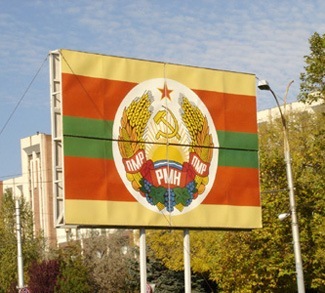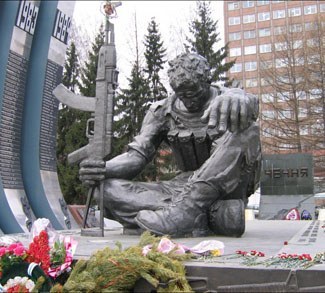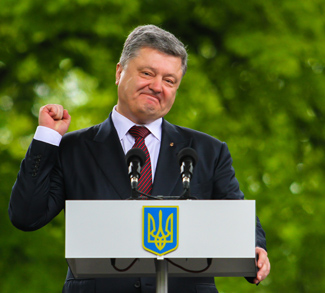Much of the world has been paying close attention to the unfolding crisis in Ukraine and dedicating a considerable amount of time dissecting the geopolitical implications the crisis has with respect to Russian-Ukrainian relations and Russian-Western relations. But what implications does the crisis have for Ukraine’s neighbors, particularly those in the Commonwealth of Independent States (CIS)? The Ukrainian crisis and the challenges faced by its fledgling government have begun to make other CIS member states worried. And nowhere is this more apparent than in Moldova.
Russia’s push for a referendum and subsequent desire to annex the Crimean region of Ukraine could have reverberations across the CIS. While Russia’s intervention has occurred under the auspices of protecting ethnic Russians who comprise a majority of the Crimea’s population, it is important to note that Russia’s incursion into sovereign territory, in what the Kremlin refers to as its “near abroad,” is not unprecedented in the post-Soviet era. Russia legitimized its invasion of Georgia in 2008 under the pretense of protecting ethnic Russians in South Ossetia and Abkhazia. If Russia manages to yet again wrestle territory from a former Soviet satellite, it may embolden Putin to try his luck elsewhere in the region. Should Putin want to issue a real statement to the likes of the EU, he may turn to Moldova, particularly the region of Transnistria, as a means of escalating an already dangerous situation. Transnistria, which straddles Moldova’s eastern border with Ukraine, is among one of the few post-Soviet “frozen conflict” zones. Approximately 30 percent of Transnistria considers itself ethnic Russian and following a brief war between Moldova and Transnistrian separatists in 1992, the Russian military has maintained a sizable contingent in the territory despite opposition from the international community.
Much like Ukraine, Moldova finds itself in a precarious situation, torn between pursuing closer ties with the EU and maintaining its traditional economic relationship with Russia. Both Moldova and Ukraine were scheduled to initiate an association agreement with the EU but unlike Ukraine, Moldova did not succumb to pressure from Moscow and began the process of officially signing the agreement in November of last year. Moldova’s decision, however, did not stop Russia’s deputy prime minister from visiting Moldova and threatening economic sanctions. Deputy Prime Minister Dmitry Rogozin was quoted as saying: “Energy is important, the cold season is near, winter on its way. We hope that you will not freeze this winter.” Rogozin went on to say that measures taken to “hinder the communications of Transnistria with the rest of the world will be a direct threat to the security and constitutional freedom of 200,000 citizens of Russia permanently living in Transnistria.” Rogozin later remarked that Russia views itself as “the guarantor of constitutional rights of its citizens.”
Moldova’s governing pro-European coalition intends to officially sign the association agreement with the EU by August of this year. Fears of Russian reprisals, however, through both economic and political coercion are real. The Kremlin employed similar tactics with Ukraine and Armenia, resulting in both abandoning the agreement. As Europe’s poorest state, relying heavily on agriculture and remittances from abroad, Moldova is especially susceptible to Russian coercion. A recently introduced Russian ban on Moldovan wine, in particular, is having a significant effect on Moldova’s economy. Should Russia wish to make life more difficult for Moldova, it will likely target Moldovan migrant workers in Russia and introduce repressive measures that will make remittances more difficult.
For its part, the European Commission has expressed its hope that Moldova will be free to decide its own future without any interference from Moscow. At a mid-February meeting between EU Commission President Jose Manuel Barroso and Romanian President Traian Basescu, Barroso said the EU intends to work closely with Romania to create more electricity, rail and road connections between Moldova and the rest of the EU. According to Barroso, funds have been already been allocated for this specific purpose.
Given the resurgence of Cold War era hostility between Russia and the West, one would expect the EU to do more to win over Moldova and expedite its goal of EU integration. If the Kremlin is intent on redrawing the postwar map of Eastern Europe, than the EU must do all it can to ensure that it is not caught flat footed. In the event that Russia uses economic coercion to strangle Moldova’s fragile economy, the EU should ready an aid or rescue package similar to the one the United States Congress is expected to approve for Ukraine. The EU has, thus far, been an economic and trading power, shying away from geopolitics and collective action on key strategic issues. In the wake of Ukraine, this may be destined to change. The EU has an enormous opportunity to shake its mantle of being a union largely concerned with economic self-interest and assume a new identity as a union willing to stand up to strategic threats in its own backyard.




